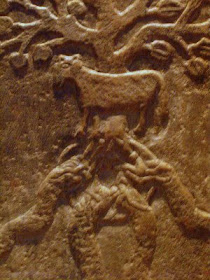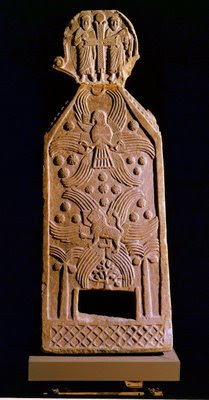Woman and man are to go to church decently attired, with natural step, embracing silence, possessing unfeigned love, pure in body, pure in heart, fit to pray to God.
Where an English speaking reader automatically takes go to church as going to a physical building rather than going to Christian worship (the reference i.e. what is actually happening is the same for either interpretation but the word's meaning is different.)Ἐπὶ δὲ τὴν ἐκκλησίαν ἀκτέον
However, none of Clement's uses seem to require that ἐκκλησία has the meaning church building. (ἐκκλησία clearly has the meaning corporation and corporations tend to have use of various properties but that is not the same thing.)
In particular the church in Alexandria must I think mean the corporate body of Christians in Alexandria meeting for worship in various places rather than meaning one specific building.
Andrew Criddle




